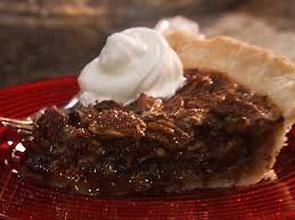|
It was Mother’s Day this past week.
I looked for a nice picture to post on Facebook. I found one from my birthday a couple years ago with me and my mother. I was eating some chocolate pecan pie she had made for me. (And always makes for me on my birthday- thanks Mom!) After I posted it, I was looking at the picture. There was something funny about the expression on my face. Then, it struck me- the particular way I was smiling and looking into the camera looked just like my father. There’s so much that’s passed on from parent to child- not just genetics, knowledge and language, but also mannerisms and patterns of behavior. And some of these patterns, alas, are ones we perhaps could do without. Have you ever been critical of some behavior in your parents, and then caught yourself unconsciously acting exactly the same way? And, its not their fault! Patterns of thought, speech and behavior have been passed down through the generations for ages. When you become aware of this, there’s a tremendous opportunity for transforming not just your own patterns, but the patterns of those who came before you. As you awaken to your deeper potential, there’s redemption for your ancestors as well. As it says in this week’s reading: “Ish imo v’aviv tira’u… “You shall revere your mother and your father…” The word here for “revere”- tira’u- has the double meaning of both “revere” or “respect” as well as “fear.” In other words, you should “fear” your potential to perpetuate the negative qualities of your parents, and “revere” them by emulating their positive qualities and transforming the negative ones within yourself! And this is the call of this week’s parsha- to awaken your potential for holiness- your potential for the expression of integrity, truth, compassion, gratitude, and all the other middot (spiritual qualities): “Kedoshim tihyu ki kadosh ani Hashem Elohekhem…” “You shall be holy, for I- Divine Being, your own Divinity- am holy…” Holiness is intrinsic to who you are- it’s your own inner Divinity. It calls upon you to craft your garments of expression- your thoughts, words and actions- into expressions of the Truth of who you are. How do you do that? This parsha contains many beautiful prescriptions for expressing holiness: “You shall not steal… you shall not lie… You shall not curse the deaf, nor place a stumbling block before the blind… You shall not favor the poor, nor honor the great... You shall not go around gossiping… you shall not hate others in your heart…you shall not take revenge and you shall not bear a grudge… You shall love your neighbor as yourself.” According to the Talmudic sage Rabbi Akiva, this last mitzvah- “Love your neighbor as you love yourself- ve’ahavta l’reiakha kamokha”- is the essence of the whole Torah. But to really become aware of your unconscious negative patterns, to really get free from them and choose to embody the middot of love and integrity, there needs to be space. The suffering of life is too great for one to remain present and aware without a break from its momentum. Perhaps that’s why the verse about revering one’s parents concludes with the words: “V’et Shab’totai tishmoru- “My Sabbaths you shall guard…” In the stillness, you can recover from the patterns of suffering and reconnect with your inner wellspring of holiness. From that place, you can remain open to whatever suffering arises without losing yourself in it. There’s a story about Reb Mordechai Dov of Hornisteipl, that once he visited a doctor for a painful sore on his back. The doctor decided the best thing to do would be to cauterize it. In those days, this would involve heating up three metal rods, each one hotter than the last. If the patient didn’t cry out with the first hot rod, they would apply the second. And in the rare occasion the patient didn’t respond to the second one, a third super hot rod was ready. The only problem was, this tzaddik was accustomed to accepting pain in silence, not losing his inner connection regardless of how much he suffered. So, when the doctor applied the first hot rod and got no reaction from Reb Mordechai Dov, he went on to the second rod. Still no reaction. When he applied the third white hot rod and the tzaddik still didn’t respond, the doctor exclaimed- “I don’t know whether this is an angel or a demon!” Reb Mordechai Dov didn’t understand Russian, so he asked the translator to tell him what the doctor said. When he was told, he answered: “Please tell the doctor that when someone comes to me and asks that I pray on their behalf, and I see that I won’t be able to relieve their suffering with my prayers, it hurts much much more than these hot rods… and even then, I must not lose myself.” On this Shabbat Kedoshim, the Sabbath of Holiness, may we become aware of our true potential and practice it in real time. May we reconnect with the Source of that potential, the infinite wellspring of holiness within- the holy awareness that looks though your eyes and hears through your ears, in this moment.
2 Comments
Hal Feiger
5/12/2016 05:15:10 pm
I believe The all encompassing, love thy neighbor as thy self, has one problem. What if and there are millions of folks who do not love themselves and even hate themselves. I find myself sometimes in that category. What are we to do? Unfortunately in extreme cases, we get murder and other horrible things.
Reply
Brian
5/12/2016 06:18:38 pm
True enough. That's why, in my view, meditation is so important! Sit with whatever you feel, learn to be present with whatever arises, and from that presence, love can arise- even in the presence of hate...
Reply
Leave a Reply. |
Archives
July 2024
|

 RSS Feed
RSS Feed